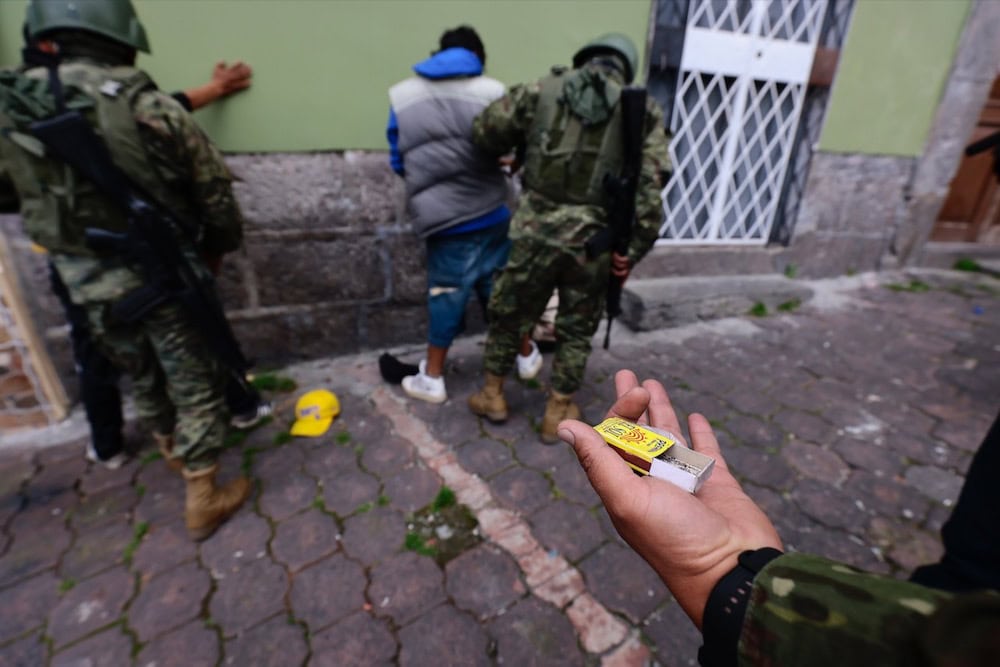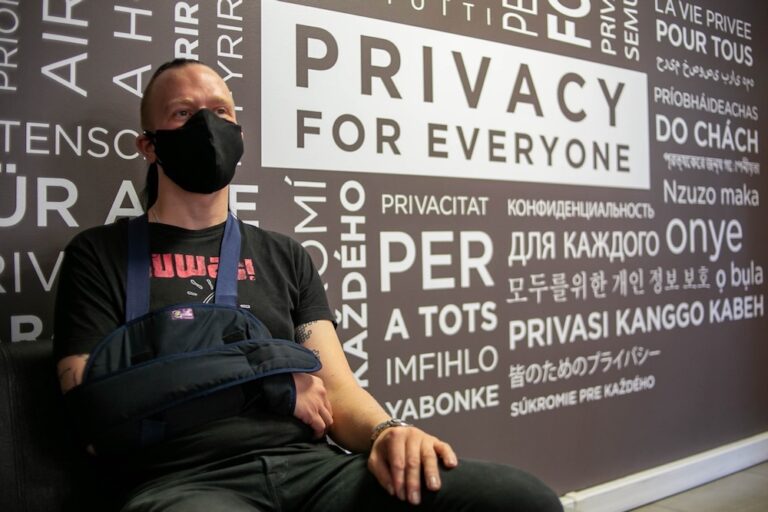"The longer journalists remain in exile, the harder it can be for them to remain in the profession" - CPJ.
This statement was originally published on cpj.org on 18 June 2024.
On the only radio station in the remote Ecuadorian town of Baeza, morning show host Juan Carlos Tito updates listeners on the weather, recent power outages, and repairs to a bridge spanning a nearby river. For the last 24 years, Tito, 53, has been the trusted voice of Radio Selva, broadcasting important community news to this town of 2,000 in the Andean highlands.
But now, Tito’s voice is beamed into Baeza from abroad.
After investigating drug gangs in and around Baeza, he received several death threats last year. So, in October, he and his wife and show producer Elvira del Pilar Nole, and their two children jammed their suitcases into the back of a borrowed car and escaped from Baeza in the dead of night.
“We were absolutely sure that within the next 24 to 48 hours they were going to attack us,” Nole said. “So, we had to escape.”
Now, they transmit their two-hour morning program, “Buenos Días, América,” from the kitchen table of their cramped apartment in a smoggy, traffic-choked Latin American city which they declined to name out of fears for their safety. Explaining why she and Tito continue to broadcast from abroad, Nole, 42, says: “We are like an umbilical cord for Baeza because we are the only ones providing local news.”
Tito and Nole have joined a growing exodus of journalists from the South American nation. An outbreak of drug-related violence has led to a surge in threats against journalists, César Ricaurte, the director of Quito-based press freedom group Fundamedios, told CPJ. He said that 16 members of the press have fled Equador since 2023, according to Fundamedios records.
“It has become a regular occurrence due to the rise of organized crime,” Ricaurte said in a phone interview. “Any reporting that that these groups think will hurt their businesses leads to threats and attacks on journalists.”
Ecuadorian journalists are not the only ones on the run. Across the world, journalists are fleeing direct threats, war, and repressive regimes. Between 2020 and 2023, CPJ’s support to exiled journalists jumped by 227%, with journalists from Afghanistan, Iran, and Nicaragua making up the largest shares of exiled media members to receive help.
“When a journalist is forced into exile, journalism suffers,” wrote CPJ Emergencies Director Lucy Westcott last year. “Many journalists cease reporting when they relocate, and readers, viewers, and listeners are robbed of the information they need to make informed decisions about their lives.”
One recent prominent Ecuadorian journalist to pack his bags is José Luis Calderón, a reporter and on-air host for TC Televisión who was held hostage by masked gunmen when they briefly occupied the public TV station in Guayaquil on January 9. During a live newscast, viewers watched as Calderón, 48, tried to reason with the intruders who pointed guns at the journalist, placed a stick of dynamite in his jacket pocket, and threatened to kill his colleagues if police intervened.
“I was trying to calm down the gunmen because we were all in danger,” Calderón told CPJ in a phone interview. “My coworkers were pleading for their lives.”
Eventually, police arrested the gunmen, but the episode had a devastating impact on Calderón. He told CPJ that he became anxious and paranoid, sought psychiatric help, and was diagnosed with post-traumatic stress disorder. Maintaining that TC Televisión could not guarantee his safety, he quit his job and in April left Ecuador for the United States, where he is seeking political asylum.
“I had to leave because I was in really bad shape,” Calderón said. “My mental health was at stake.”
A CPJ special report published last year found that political turmoil combined with rising organized crime in Ecuador have put journalists at much greater risk, leading to self-censorship among reporters working in high-risk areas, and prompting some to leave the country.
Over the past decade, the country’s drug-trafficking gangs have become increasingly violent while turning Ecuador into a major transit point for cocaine from neighboring Colombia, according to Insight Crime. Between 2019 and 2023, the homicide rate increased by more than 500 percent, according to the independent Ecuadorian Observatory on Organized Crime.
Following the armed takeover of TC Televisión in January, President Daniel Noboa, who was elected last year on a law-and-order platform, declared a state of “internal armed conflict” against 22 criminal gangs. Since then, overall killings have decreased but extortions and kidnappings have risen and “the security situation remains dire,” according to Human Rights Watch.
Ecuador’s two main gangs, known as Los Choneros and Los Lobos, control many of the country’s prisons and work in concert with Colombian and Mexican cartels as well as corrupt Ecuadorian officials. Ecuadorian prosecutors say that members of Los Lobos planned last year’s assassination of presidential candidate and former journalist Fernando Villavicencio, who had vowed to crack down on gangs.
Journalists reporting on gangs are usually the ones who get threatened, says Karol Noroña, who used to write for the Ecuadorian news site GK. Her troubles began when she began investigating how gang leaders control penitentiaries and run illicit businesses from behind bars. After one of her sources told her that a gang leader was threatening to kill her, Noroña fled Ecuador in April 2022.
“The gangs realized I was not on their side,” Noroña told CPJ in a phone interview. “That’s why I had to go into exile.”
She has split her time between Bogotá and Buenos Aires but says life in exile is sad, depressing, and expensive.
“The hardest part is getting uprooted,” she said. “I never wanted to leave the country. Not being able to work took away the most important thing in my life.”



